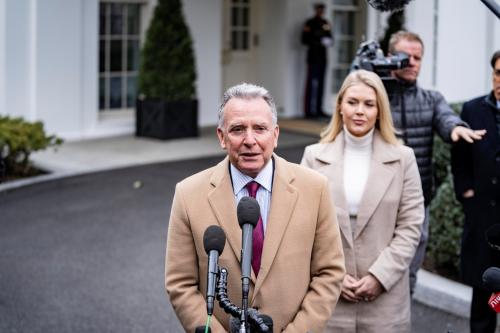Pierre Moscovici, former French Minister for European Affairs, recently put it starkly: Europe is in a deplorable state and doing little to right itself. And this paralysis comes precisely at a moment when huge challenges lie ahead: the Constitution, enlargement, the new EU budget, a new Commission and a new EU Parliament. Moscovici called it the unbearable European paradox: “On one hand, Europe is stalling, is disenchanted even disillusioned. On the other hand, the need for Europe is as powerful as it is unsatisfied.”1
Moscovici is right. For years, the European Union has tried to widen and deepen in parallel. But since the Treaty of Maastricht took effect in 1992, the deepening process has stumbled, puttering ahead with the Amsterdam and Nice treaties, but making little real progress. The widening process, however, is moving ahead briskly. On May 1, 2004, ten new countries joined the EU, completing the Union’s most significant expansion since its foundation in 1957. But this dramatic expansion is not enough. The shock of enlargement has not yet subsided, and already new enlargement rounds are being sketched out: the next probably in 2007 bringing in Bulgaria, Romania and Croatia; one in about 2010 that will try to cope with the Balkans; and another in perhaps 2013 that will tackle the difficult task of Turkey. Meanwhile, the list of countries seeking accession keeps getting longer. Countries like Ukraine, Belarus and Moldova are waiting in the East, while Morocco and others wait in the South.
The EU will therefore have to quickly work out the tensions between wider enlargement and deeper integration. To put it simply, the enlarged EU has to answer the question of whether it can be a political union after this and subsequent enlargements.
View Full Article (PDF—86kB) Get Adobe Acrobat Reader
The Brookings Institution is committed to quality, independence, and impact.
We are supported by a diverse array of funders. In line with our values and policies, each Brookings publication represents the sole views of its author(s).


Commentary
The European Paradox: Widening and Deepening in the European Union
June 1, 2004